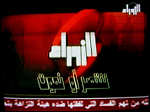
ABOVE: Rami Makhluf
Today the Department of Treasury’s Office of Foreign Assets Control (“OFAC”) designated as an SDN Rami Makhluf, the maternal cousin of Syria’s President Bashar al-Assad and owner of Syriatel, Syria’s largest mobile phone provider. The basis for the designation was novel. It was not because of any allegation that Makhluf was involved in destabilizing the peace process in the Middle East or destabilizing Lebanon. Rather, it was because he is alleged to be a corrupt guy who exploits his close family ties to the Syrian government to further his business interests in Syria.
Come again? Hear for yourself, straight from the lips of Stuart Levey, the Department of Treasury’s Under Secretary for Terrorism and Financial Intelligence:
Rami Makhluf has used intimidation and his close ties to the Asad regime to obtain improper business advantages at the expense of ordinary Syrians,” said Stuart Levey, Under Secretary for Terrorism and Financial Intelligence. The Asad regime’s cronyism and corruption has a corrosive effect, disadvantaging innocent Syrian businessmen and entrenching a regime that pursues oppressive and destabilizing policies, including beyond Syria’s borders, in Iraq, Lebanon, and the Palestinian territories.
This novel theory of designation was set up by Executive Order 13460, signed by President Bush last week on February 15 and which found that
the conduct of certain members of the Government of Syria and other persons contributing to public corruption related to Syria, including by misusing Syrian public assets or by misusing public authority, entrenches and enriches the Government of Syria and its supporters and thereby enables the Government of Syria to continue to engage in certain conduct that formed the basis for the national emergency declared in Executive Order 13338.
Executive Order 13338 was based on Syria’s occupation of Lebanon, it’s pursuit of WMD, and its interference with the stabilization and reconstruction of Iraq.
Executive Order 13460 and the designation of Rami Makhluf, both promulgated under the International Economic Emergency Powers Act (“IEEPA”) must meet the standards set forth therein. That statute permits such designations if the President finds that it is necessary to meet an extraordinary threat to the national security, foreign policy or economy of the United States. Such a finding is clearly a leap when applied to foreign government “cronyism” with foreign companies and their executives. Exploiting family ties to the Syrian government officials doesn’t entrench the government; rather it entrenches the people exploiting those ties.
Another problem with this designation was pointed out by commenter Ex-OFAC in his comment on yesterday’s post on OFAC’s 50 percent rule. The designation prohibits U.S. persons from doing business with Makhluf, and by extension of the 50 percent rule, with any business in which Makhluf owns a 50 percent interest or greater. If Makhluf in fact owns a majority-stake in Syriatel, are American telephone companies violating the law when they connect U.S. outbound calls to that network and pay the connection fee? Makhluf’s other business holdings are alleged to be enormous and so any company doing business with Syria does so at the peril of finding out that Rami is a controlling shareholder.

 Posted by
Posted by  Category:
Category: 


 During President Bush’s trip to Arkansas on Monday, he was
During President Bush’s trip to Arkansas on Monday, he was  We have
We have  Invitrogen and the Bureau of Industry and Security (“BIS”) recently signed a
Invitrogen and the Bureau of Industry and Security (“BIS”) recently signed a 

